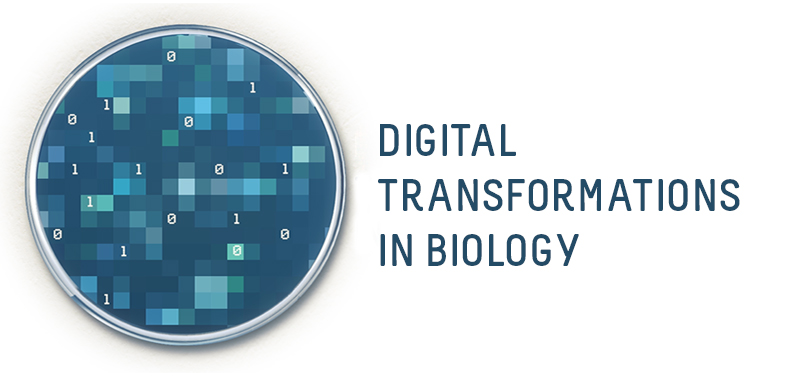Digital Transformations in Biology

Living organisms are indeed very complex molecular machines. Even the simplest natural organism, Mycoplasma genitalium, contains 0.5 million base pairs, which code for 482 proteins that can form an intricate and complex network of interactions with other proteins, membranes, cellular metabolites and nucleic acids, creating a heavily regulated system. There is another level of complexity inside the macromolecules in living cells: each is constituted by atoms and has inherent complex dynamics sensitive to external conditions. Even higher levels of complexity are present at the interaction between cells, tissues, organisms and ecosystems.
Systems within systems within systems, ranging many scales, to produce what we call Life.
The ambition to understand life in all its complexity and to ensure this knowledge translates into valuable applications to society requires a new approach to biology. One that can handle all the data generated by modern techniques, build predictive models or even make decisions with minimal human intervention.
Data and models, models and data, aiming to grasp the complexity of biological systems and unveil the mysteries of Life.
Biology is witnessing an impressive digital transformation that has already enabled the assembly and annotation of several thousand genomes, the design of biological molecules and synthetic organisms, the development of novel medical approaches, and the generation of efficient data analysis algorithms. And this is just the beginning. The digital transformation in biology will continue, fuelled by an overall digital transformation in society, which is providing us with unparalleled computational power, powerful algorithms, efficient approaches to tackle Big Data, robotics and artificial intelligence.
The digital transformation in biology cannot rely simply on better machines. We need new biologists who can fluently speak both the language of biology and of computer science and who know how to build bridges between the two worlds, accepting the challenges that lie ahead, playing their role as actors in this transformation.
The year is 2020, we may be holding to our old ways, but the digital transformations in biology are here and are unstoppable.
Stay tuned to learn more about our Digital Transformations in Biology initiative.









